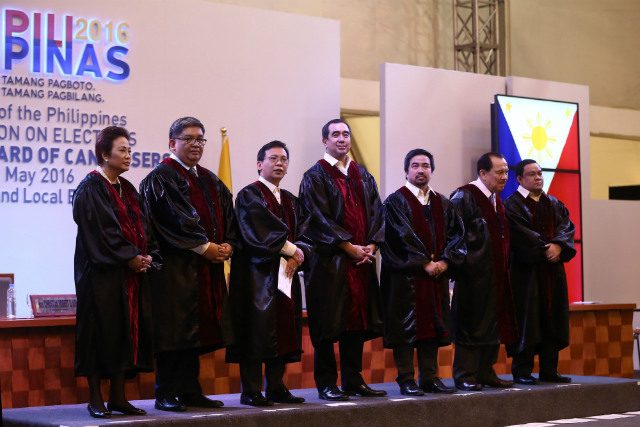SUMMARY
This is AI generated summarization, which may have errors. For context, always refer to the full article.

MANILA, Philippines (UPDATED) – The Commission on Elections (Comelec) on Wednesday, May 25, said it has deferred action on the appeal of vice presidential candidate Senator Ferdinand Marcos Jr to audit the automated system used in the May 9 elections.
Comelec Chairman Andres Bautista said the poll body made this unanimous decision on Tuesday, May 24.
In making this decision, Bautista said the Comelec considered, among other things, the canvassing of votes for presidential and vice presidential candidates beginning Wednesday. (READ: What will Congress do with mismatched COCs, electronic count?)
Referring to the audit’s possible effects on canvassing, he said, “Ano ang magiging epekto kung hahayaan naming magkaroon ng audit na ginagawa ng isang kandidato?” (What will be the effect if we will allow an audit done by a candidate?)
Still, Bautista said the Comelec is open to a system audit by “disinterested, non-partisan, and qualified” information technology practitioners.
He said qualified auditors could include members of the Department of Science and Technology and the Comelec Advisory Council.
Bautista explained that the poll body wants to ensure “transparency and accountability” in the election process.
Comelec Commissioner Rowena Guanzon on Tuesday said she supports an independent third party audit of the election system to help the Comelec “assess the effectiveness and efficiency of the automated election system that we use now.”
The Marcos camp earlier said it wants to audit the system receiving election results.
The Marcos camp claims that a new script introduced into the Comelec’s Transparency Server, which is the basis for unofficial results, could have caused a sudden surge in his rival Leni Robredo’s votes.
Bautista, however, said the change in the so-called hash code is only “cosmetic” in nature.
He said it only meant to correct a typographical error in the system, where the letter “Ñ” appeared as a “?” or a question mark. (READ: FAQ: The Ñ issue and alleged fraud in the elections) – Rappler.com
Add a comment
How does this make you feel?
There are no comments yet. Add your comment to start the conversation.